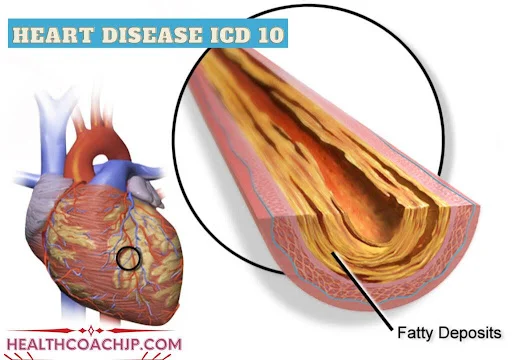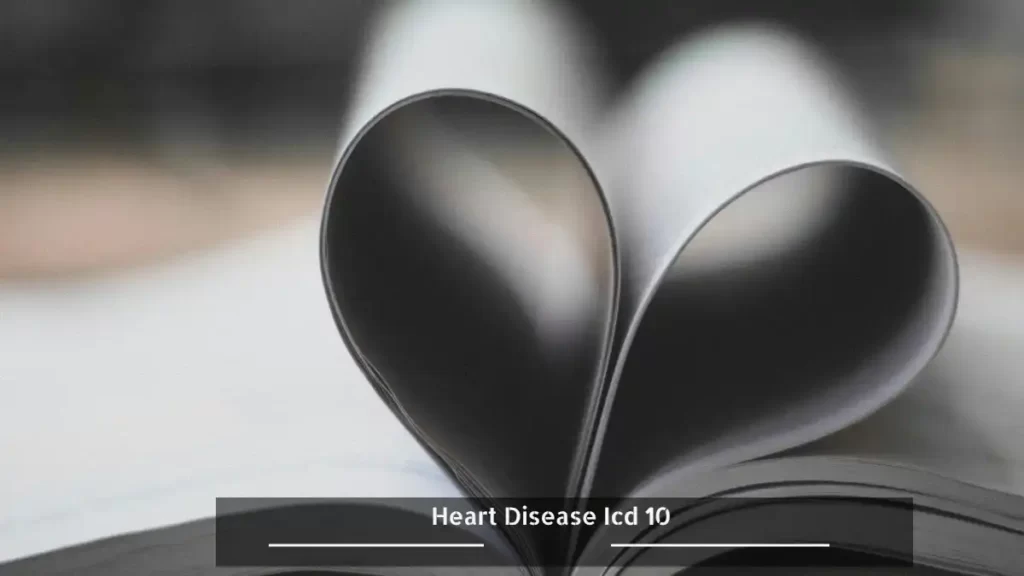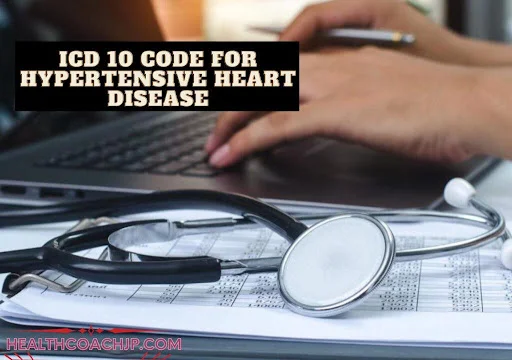Icd 10 is a small battery-powered device that is placed inside your chest to monitor your heart rhythm and detect irregular heartbeats.
Heart Disease Icd 10! Never Underestimate! But why? Is it a serious problem? Let us know in this article in an easy way. We here will know what is heart disease icd 10. How does it work? Who needs?
What is heart disease icd 10?
Also known as an implantable cardioverter-defibrillator, icd 10 is a small battery-powered device that is placed inside your chest to monitor your heart rhythm and detect irregular heartbeats. It can deliver electric shocks via one or more wires connected to your heart to fix an abnormal heart rhythm.
You will need an ICD 10 if you have an uncontrollably fast heartbeat also known as ventricular tachycardia that keeps your heart from supplying enough blood to the rest of your body or this phenomenon is known as ventricular fibrillation. Ventricles are present in the lower chambers of your heart.

For heart disease icd 10 conditions, there are different problems related like atrial fibrillation and flutter, cardiac arrhythmias, chest pain, heart failure, hypertension, etc.
How does it work for icd 10?
When you have a rapidly fast heartbeat, the wires present in your heart to the device transmit signals to the ICD 10, which then sends electrical pulses to regulate your heartbeat. ICD 10 is programmed for:
1. Low-energy pacing
It may be seen that patients may feel nothing or a painless fluttering in their chest, then the ICD 10 responds to mild disruptions in their heartbeat.
2. A higher-energy shock
For more serious heart rhythm problems, the ICD 10 may deliver a higher-energy shock which can be painful. The pain usually lasts only a second, and there shouldn’t be discomfort after the shock ends.
Usually, only one shock is needed to restore a normal heartbeat but sometimes, you might have two or more shocks during a 24-hour period. The process of having three or more shocks in a short time period is known as an electrical or arrhythmia storm. If you are experiencing an electrical storm, you should seek emergency care to see if your ICD 10 is working properly and check if you are having a problem that’s making your heart beat abnormally.
Who needs an icd 10?
You are a victim of a valvular heart disease icd 10 if you’ve experienced ventricular tachycardia, survived a cardiac arrest, or even fainted from a ventricular arrhythmia. You may also experience an ICD 10 if you have-
- A history of coronary artery disease and heart attack has led to the weakening of your heart.
- A heart condition that involves abnormal heart muscle, like enlarged or thickened heart muscle.
- An inherited heart defect that makes the heartbeat abnormal.
- Other rare conditions that affect your heart rhythm.
How to prepare for valvular heart disease icd 10?
To determine whether you need a hypertensive heart disease icd 10, your doctor might perform a variety of diagnostic tests which include-

1. Electrocardiography (ECG)
This test uses sensor pads with wires attached or sometimes electrodes placed on your body to measure your heart’s electrical impulses and then the heart’s beating pattern gives an idea of the defect.
2. Echocardiography
This test uses harmless sound waves that allow the doctor to see the insides of the heart without making cuts. The images show how well your heart is functioning and the basic information like the size and thickness of your heart muscle.
3. Electrophysiology study (EPS)
In this method, the electrodes are guided through blood vessels to the heart and used to test the functioning of the heart’s electrical system. This can identify whether someone might have developed heart rhythm problems.
4. Event recorder-
Sometimes doctors might ask to wear a pager-sized device that records the activities of the heart for more than 24 hours. Unlike a Holter monitor, it doesn’t operate continuously, rather you have to turn it on when you feel your heart is beating abnormally.
Icd 10 family history of heart disease
If we talk about icd 10 family history of heart disease, Z82.49 is a billable code used to indicate a clinical conclusion of the family background of heart disease. The code is legitimate for the financial year 2021 for the accommodation of HIPAA-covered exchanges. The ICD-10-CM code Z82.49 may likewise be utilized to determine conditions or terms like the family background of an intense clinical problem, icd 10 family history of heart disease. The code is excluded from the present confirmation revealing inpatient admissions to general intense consideration medical clinics.
The code Z82.49 portrays a situation that impacts the patient’s well-being status yet not a current ailment or injury. The code is unsatisfactory as a chief analysis.
Icd 10 code for hypertensive heart disease
According to ICD 10 data, icd 10 codes for hypertensive heart disease are as follows:
- I11.0 is a billable/explicit ICD-10-CM code that can be utilized to demonstrate an analysis for repayment purposes.
- The 2021 release of ICD-10-CM I11.0 got viable on October 1, 2020.
- This is the American ICD-10-CM rendition of I11.0 – other worldwide adaptations of ICD-10 I11.0 may vary.

It is applicable to hypertensive heart disease icd 10. Mainly icd 10 code is used to identify heart failure type. Below are the icd 10 codes for hypertensive heart disease code history:
- 2016 (effective 10- January 2015): New code (first year of non-draft ICD-10-CM)
- 2017 (effective 10 January 2016): No change
- 2018 (effective 10 January 2017): No change
- 2019 (effective 10 January 2018): No change
- 2020 (effective 10 January 2019): No change
- 2021 (effective 10 January 2020): No change
Frequently Asked Questions (FAQs) on heart disease ICD-10
Q. What is ICD-10?
Ans. ICD-10 is the International Classification of Diseases, Tenth Revision, which is a standardized system of diagnosis codes used to classify and code medical conditions and procedures.
Q. What is the ICD-10 code for heart disease?
Ans. The ICD-10 code for heart disease is I00-I99, which includes a wide range of cardiovascular conditions such as heart attack, angina, arrhythmias, and heart failure.
Q. How are ICD-10 codes used in heart disease diagnosis and treatment?
Ans. ICD-10 codes are used by healthcare providers to document and communicate the diagnosis of heart disease to insurance companies and other healthcare organizations. This information is used to ensure proper billing and reimbursement for medical services and to track the prevalence and incidence of heart disease in populations.
Q. What are some common heart disease ICD-10 codes?
Ans. Some common heart disease ICD-10 codes include:
I20.0: Unstable angina
I21.4: Non-ST elevation myocardial infarction
I50.9: Heart failure, unspecified
I63.9: Cerebral infarction, unspecified
I70.9: Atherosclerosis, unspecified
Q. Can ICD-10 codes be used for research on heart disease?
Ans. Yes, ICD-10 codes are often used in research to track the prevalence and incidence of heart disease in populations and to study the effectiveness of different treatments and interventions for heart disease.
Q. How often are ICD-10 codes updated?
Ans. ICD-10 codes are updated periodically to reflect changes in medical knowledge and advances in medical technology and treatment. The World Health Organization, which oversees the development of the ICD system, typically releases updates every few years.
